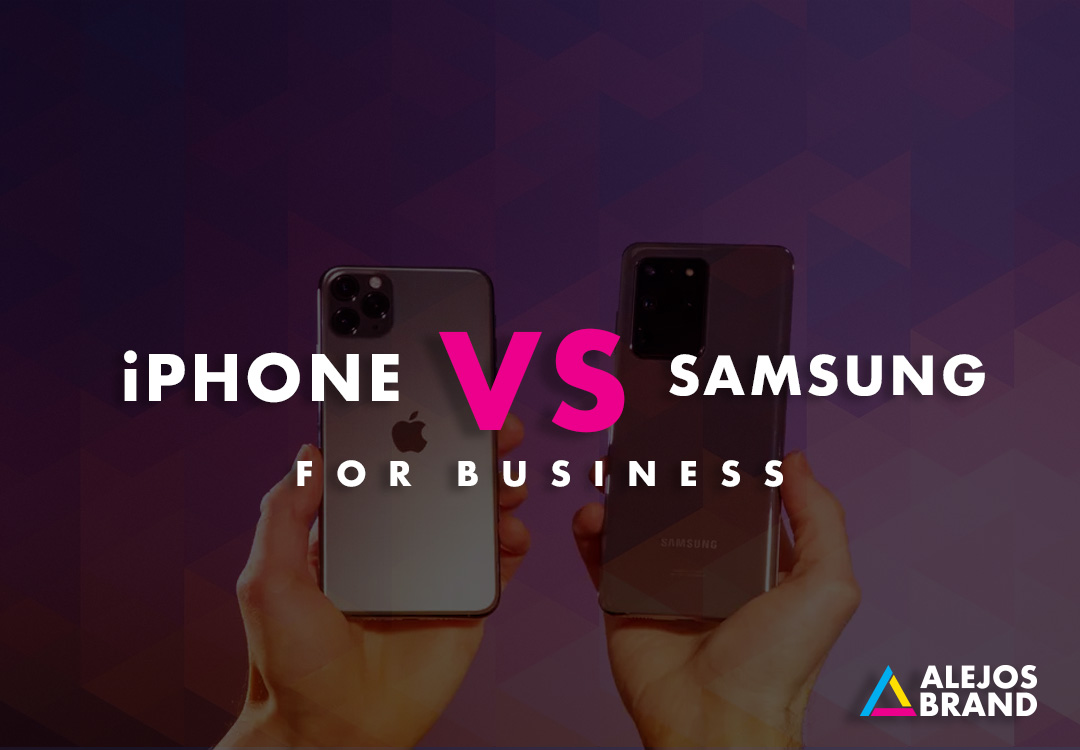In today’s fast-paced business world, having a reliable and feature-rich smartphone is essential. When it comes to selecting the perfect device, two prominent contenders stand out: the iPhone and Samsung phones. Both brands offer a wide range of options with cutting-edge technology and robust capabilities. In this article, we’ll compare the iPhone and Samsung phones to help you determine which one is better suited for your business needs.
Operating System and User Experience:
The choice between iOS (iPhone) and Android (Samsung) plays a significant role in the user experience. Apple’s iOS is known for its seamless integration across devices, user-friendly interface, and strict security measures. It offers a consistent and intuitive experience, making it an ideal choice for those accustomed to the Apple ecosystem. On the other hand, Samsung’s Android operating system provides more customization options, flexibility, and compatibility with various apps. It caters to users who prefer a more personalized and adaptable interface.
Security and Privacy:
When it comes to business, data security and privacy are paramount. iPhones are renowned for their robust security features, including encrypted messaging, built-in device encryption, and stringent app screening processes. Apple has a reputation for prioritizing user privacy and has implemented measures to protect sensitive information effectively. Samsung phones, on the other hand, also provide a high level of security with features like Samsung Knox, which offers secure data storage and containerization. However, some argue that Apple’s closed ecosystem provides a more controlled and secure environment for business users.
Productivity and Integration:
Efficiency and productivity are crucial factors for businesses. iPhones are known for their seamless integration with productivity tools like iCloud, iWork, and Siri, allowing for smooth collaboration and file sharing across devices. The App Store offers a vast selection of business-oriented applications, catering to various needs. Samsung phones, with their Android platform, provide compatibility with popular productivity apps like Google Suite, Microsoft Office, and a wide range of third-party applications. Additionally, Samsung’s DeX mode enables users to transform their phones into a desktop-like experience, further enhancing productivity.
Hardware and Features:
Both iPhone and Samsung phones boast powerful hardware and innovative features. iPhones are recognized for their sleek designs, premium build quality, and excellent camera capabilities. They often integrate cutting-edge technologies like Face ID facial recognition and advanced photography features, catering to users who prioritize aesthetics and multimedia functionalities. Samsung phones, on the other hand, offer a diverse range of models with varying screen sizes, expandable storage options, and industry-leading display technologies such as Dynamic AMOLED. Additionally, Samsung’s devices often come equipped with advanced camera setups and features tailored for business use.
Conclusion: Choosing between an iPhone and a Samsung phone for your business ultimately depends on your specific requirements and preferences. If you value a streamlined and secure ecosystem with seamless integration, an iPhone might be the ideal choice. On the other hand, if you prioritize customization, compatibility with a wide range of apps, and flexibility, Samsung phones offer a compelling option. Consider factors like operating system, security, productivity features, and hardware to make an informed decision that aligns with your business needs.

